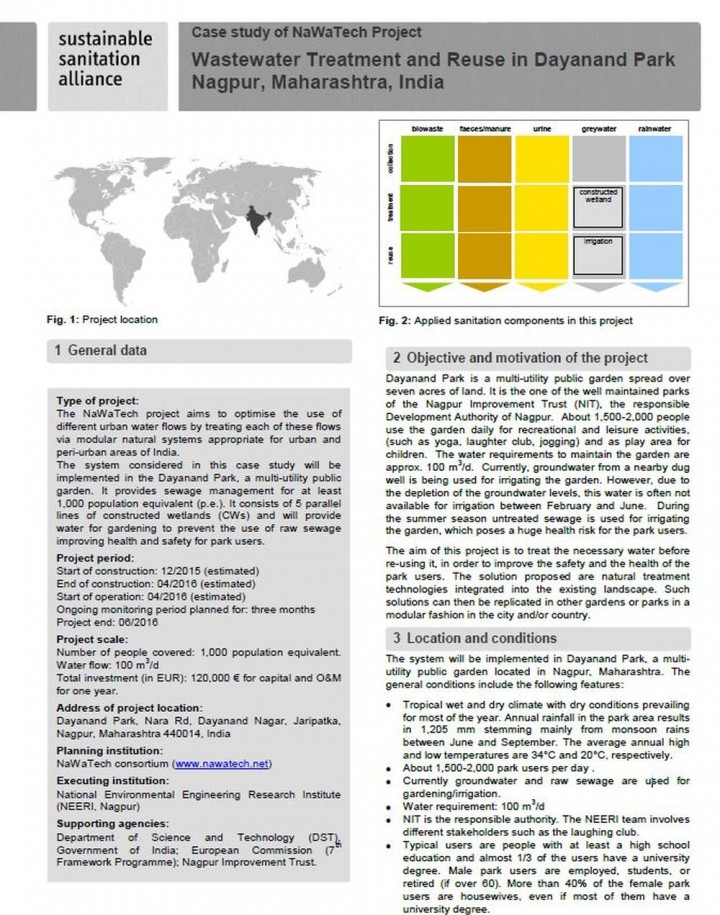Wastewater Treatment and Reuse in Dayanand Park, Nagpur, Maharashtra, India (NaWaTech) Case study of sustainable sanitation projects Garfí, M. (2015)
Dayanand Park is a multi-utility public garden spread over seven acres of land. It is the one of the well maintained parks of the Nagpur Improvement Trust (NIT), the responsible Development Authority of Nagpur. About 1,500-2,000 People use the garden daily for recreational and leisure activities, (such as yoga, laughter club, jogging) and as play area for children. The water requirements to maintain the garden are approx. 100 m3/d. Currently, groundwater from a nearby dug well is being used for irrigating the garden. However, due to the depletion of the groundwater levels, this water is often not available for irrigation between February and June. During the summer season untreated sewage is used for irrigating the garden, which poses a huge health risk for the park users.
The aim of this project is to treat the necessary water before re-using it, in order to improve the safety and the health of the park users. The solution proposed are natural treatment technologies integrated into the existing landscape. Such solutions can then be replicated in other gardens or parks in a modular fashion in the city and/or country.
Bibliographic information
Garfí, M. (2015). Wastewater Treatment and Reuse in Dayanand Park, Nagpur, Maharashtra, India (NaWaTech) Case study of sustainable sanitation projects Sustainable Sanitation Alliance (SuSanA)
Filter / Tags
Case studies in SuSanA template
Downloads
Wastewater Treatment and Reuse in Dayanand Park, Nagpur, Maharashtra, India
Type: application/pdf
Size: 0.36 MB

